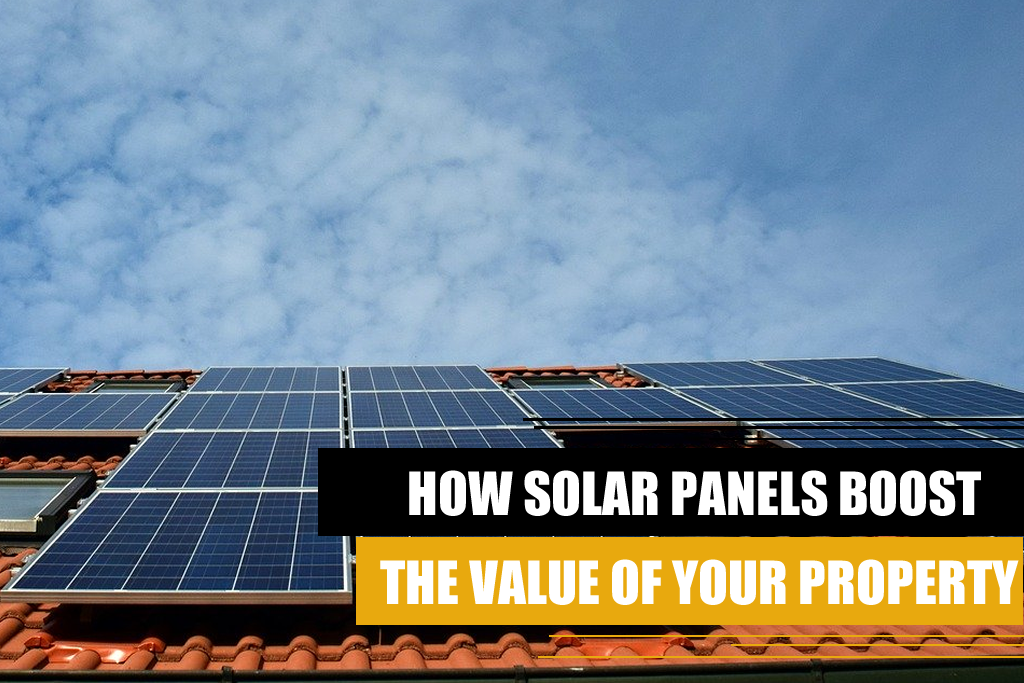
There are many home upgrades that can increase your property’s value.
One of the major home improvement projects that have gained popularity in the past decade is installing solar panels.
Since this is a large financial investment, it is very important to think long-term before going solar. You know that installing solar panels is good for the environment, but is it good for your wallet? Savvy homeowners, buyers, and appraisers agree that it is.
Let’s find out how exactly solar panels boost the value of your property and what factors you should consider before installing them.
The Added Property Value Constitutes Many Factors
Under ideal circumstances, solar panels boost the value of your property significantly, but whether or not they pay off in your particular case depends on many things. The value solar panels add to a home can vary based on the following:
- Solar power rebates and other incentives
- Electricity rate
- Age of solar system
- System installation price
- System replacement value
- Amount of energy generation
- Frequency of power outages
What Is the Cost of Solar Systems?
Over the past few years, the U.S. solar industry has grown tremendously. The number of homes with solar is constantly growing. Consequently, the cost of solar systems has decreased.
The total cost of adding solar panels to your property will vary depending on the type and size of the system you choose, as well as the location of your solar-powered home.
The average cost of residential solar power systems in the US is currently $3.34 per watt.
The average cost of residential solar power systems in the state of Texas is $2.91 per watt, but every city is different. For example, the average cost of solar panels Austin homeowners currently need to pay is $2.68 per watt.
Thus, a 6000 watt (6 kW) solar system costs $16,053 before claiming the federal solar credit and $11,879 after the tax credit. This is likely to change in the future as the price of materials changes and the federal tax credit decreases.
Are There Any Incentives?
If you like the idea of upgrading your home with solar panels to boost its value but you’re intimidated by the initial costs, know that there are solar rebates and incentives homeowners can take advantage of.
The United States Environmental Protection Agency (EPA) offers tax credits and incentives for projects related to energy efficiency, including tax credits for installing solar energy systems.
Five years ago, the federal government introduced a renewable energy tax credit and until the end of 2019 homeowners could claim a credit of up to 30% of the cost of their solar system. At the begging of 2020, this percentage started to decrease, and by the end of next year, the solar energy federal tax credit will expire. If you hurry to install a solar energy system in time to take advantage of the tax credit, you can either deduct the tax credit directly from your tax payment if you owe federal taxes or from your taxable income when filing your taxes.
Some states offer rebates and incentives that reduce the overall cost of going solar.
Although Texas doesn’t offer a statewide solar tax credit, most local utilities offer incentives that can help homeowners go solar and make other energy-related home improvements. The availability and structure of rebates vary depending in the location, but most Texas utilities offer rebates that can be paid out on a price per watt basis that is capped at a maximum amount per project.
Do Solar Properties Sell Faster?
If planning on moving and selling your home fast, having solar panels could help.
Similar to property values, the time spent on the market often varies by region.
While some researchers claim that solar-powered homes take an extra eight days to sell, other analyses show that solar homes sell 20% faster than properties without solar panels.
How Much Maintenance Is Needed?
Solar panels are pretty low maintenance.
They only require occasional cleaning. However, regular cleaning and maintenance may be necessary if you want to keep your warranty current or if you choose to lease your panels.
Make sure you read your agreement carefully so as to know how much maintenance solar requires. Many solar companies in Texas offer maintenance services and the price of cleaning normally varies between $150 and $330.
How Much Do Solar Panels Boost the Value of Your Property?
How solar panels boost the value of your property varies from place to place.
Still, according to Zillow, no metropolitan area witnessed a decrease in property values due to solar panels. Some analyses show that for each $1 reduction in annual utility bills property value increases $20.
If you own a property in Texas, adding solar panels can bring a $3.00 increase per watt to your property’s value.
Still, with so many variables and uncertainties, it is hard to quantify the value of a solar system and determine for sure how solar panels impact housing prices.
If you’re not sure how solar panels boost property value in your area, turn to your local real estate agent for advice.
New vs. Older Solar Systems
Homeowners with newer solar systems can anticipate a bigger boost to their property value.
A new residential solar energy system with efficient technology means less maintenance and a longer warranty. On the other hand, homeowners with older systems can expect a slightly lower premium upon selling.
All Things Considered, Are Solar Panels Worth Installing?
Generally speaking, installing solar panels is a wise investment compared to many other home improvements.
If you’re a Texas resident and you are thinking about updating your property with solar panels, it is recommendable to do thorough research and work with the best solar companies in Texas.
Once you assess all the different factors that influence how solar panels boost the value of your property and find a reliable team for the job, you will be able to make the most of this valuable home upgrade.
